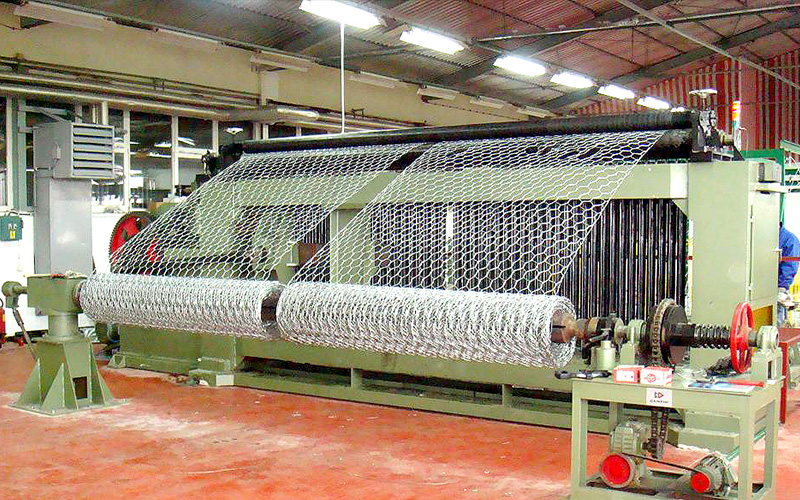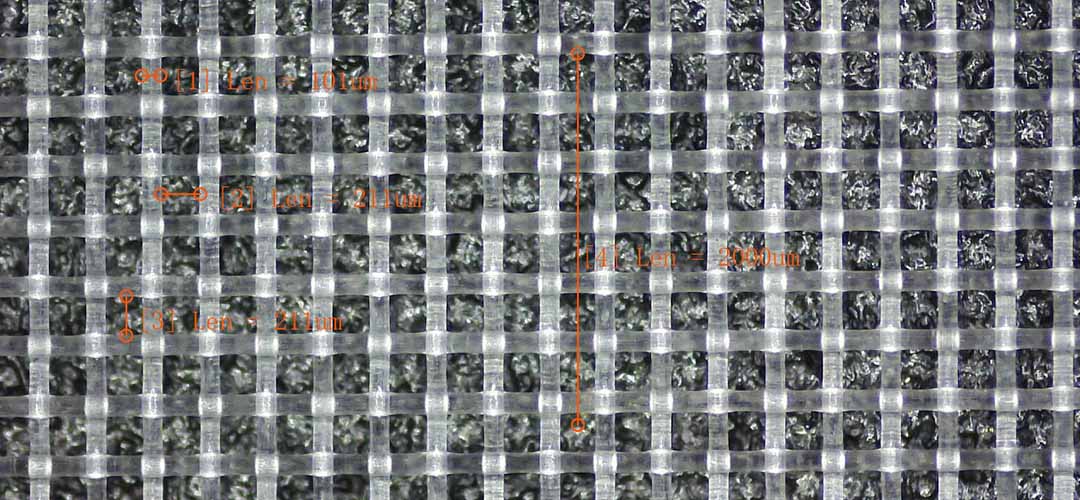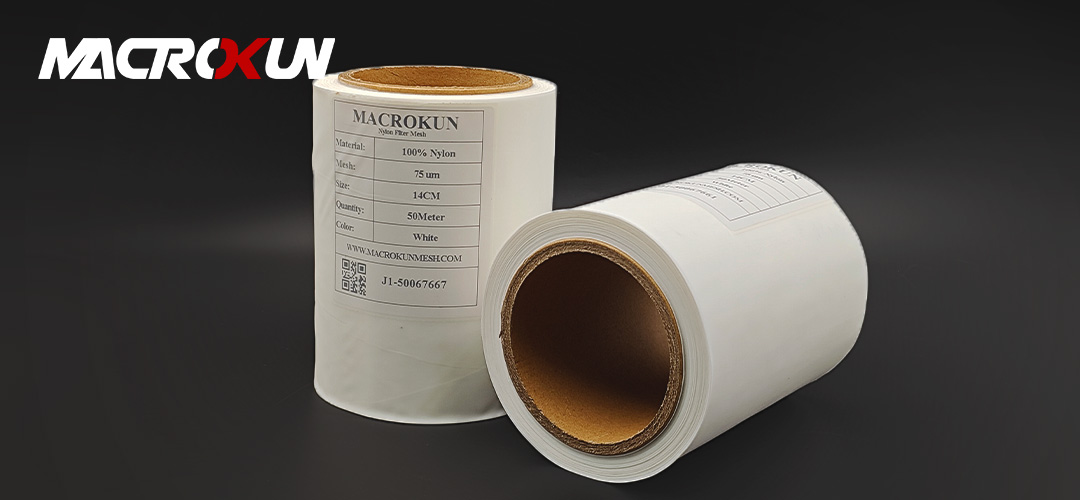When it comes to liquid filtration, choosing the right mesh nylon filter is crucial to achieving optimal results. Mesh sizes play a significant role in determining the filtration efficiency of a filter, and understanding how they impact the filtration process is essential for selecting the right filter for your specific application.
Mesh sizes refer to the number of openings per linear inch in a filter screen. The higher the mesh size, the smaller the openings in the filter screen, and vice versa. This means that filters with higher mesh sizes are capable of capturing smaller particles, while filters with lower mesh sizes are better suited for capturing larger particles.
In general, the mesh size of a filter is directly related to its filtration efficiency. Filters with smaller mesh sizes are more effective at removing fine particles from liquids, while filters with larger mesh sizes are better at removing larger particles. Therefore, it is important to consider the size of the particles you are trying to remove when selecting a mesh nylon filter for your liquid application.

Another factor to consider when choosing a mesh nylon filter is the material of the filter screen. Nylon filters are known for their durability and resistance to chemicals, making them an excellent choice for a wide range of liquid filtration applications. Additionally, nylon filters are available in a variety of mesh sizes, making it easy to find the right filter for your specific needs.
When selecting a mesh nylon filter, it is important to consider the flow rate of the liquid being filtered. Filters with smaller mesh sizes may restrict the flow of liquid more than filters with larger mesh sizes, so it is important to choose a filter that allows for adequate flow while still providing effective filtration.
In addition to mesh size and material, the construction of the filter screen is also an important consideration. Filters with reinforced edges are less likely to fray or tear during use, ensuring a longer lifespan and more consistent filtration performance. Additionally, filters with a uniform weave pattern are more effective at capturing particles evenly across the entire surface of the filter screen.
Ultimately, choosing the right mesh nylon filter for your liquid application requires careful consideration of a variety of factors, including mesh size, material, flow rate, and construction. By taking the time to evaluate these factors and select a filter that meets your specific needs, you can ensure optimal filtration efficiency and performance.
In conclusion, understanding mesh sizes and their impact on filtration efficiency is essential for selecting the right mesh nylon filter for liquid applications. By considering factors such as mesh size, material, flow rate, and construction, you can choose a filter that provides effective filtration while meeting the unique requirements of your application. With the right filter in place, you can achieve optimal results and ensure the quality and purity of your liquid products.
When selecting a mesh nylon filter for liquid applications, understanding the material’s properties is crucial to ensuring optimal performance and longevity. Nylon, a synthetic polymer, has gained popularity in various industries due to its unique characteristics that make it particularly suitable for liquid filtration. One of the primary advantages of nylon is its excellent chemical resistance. Unlike many other materials, nylon can withstand exposure to a wide range of chemicals, including acids, bases, and solvents. This resilience allows nylon filters to be used in diverse applications, from food and beverage processing to pharmaceuticals, where maintaining the integrity of the liquid is paramount.
In addition to its chemical resistance, nylon is known for its durability and strength. The material exhibits high tensile strength, which means it can endure significant stress without breaking or deforming. This property is especially important in liquid filtration systems, where filters are often subjected to varying pressures and flow rates. A nylon filter can maintain its structural integrity under these conditions, ensuring consistent performance over time. Furthermore, nylon’s flexibility allows it to be molded into various shapes and sizes, making it adaptable to different filtration systems and requirements.

Another significant consideration is the mesh size of the nylon filter. The ability to customize the mesh size enables precise filtration, allowing manufacturers to select a filter that meets specific application needs. For instance, a finer mesh may be required for applications involving small particulates, while a coarser mesh may suffice for larger debris. This versatility in mesh size ensures that the filtration process is efficient, effectively removing unwanted particles while allowing the desired liquid to pass through.
Moreover, nylon filters are lightweight, which contributes to their ease of installation and maintenance. The reduced weight of nylon compared to other materials, such as metal or glass, simplifies the handling and replacement of filters in various systems. This aspect is particularly beneficial in large-scale operations where efficiency and speed are critical. Additionally, the lightweight nature of nylon can lead to lower shipping costs and easier storage, further enhancing its appeal for businesses looking to optimize their operational expenses.
Another factor to consider is the temperature resistance of nylon. While nylon can withstand a range of temperatures, it is essential to select the appropriate grade of nylon for specific applications. Certain nylon formulations are designed to endure higher temperatures, making them suitable for processes that involve heated liquids. This adaptability ensures that businesses can find a nylon filter that meets their thermal requirements without compromising performance.
Furthermore, the ease of cleaning and maintenance associated with nylon filters cannot be overlooked. Many nylon filters can be cleaned and reused, which not only reduces waste but also lowers operational costs. This reusability is particularly advantageous in industries where filtration systems are frequently used, as it minimizes the need for constant replacements and contributes to a more sustainable approach to liquid filtration.
In conclusion, the material considerations surrounding nylon filters highlight their suitability for liquid applications. With their chemical resistance, durability, customizable mesh sizes, lightweight nature, temperature resilience, and ease of maintenance, nylon filters present a compelling choice for businesses seeking reliable and efficient filtration solutions. By understanding these material properties, companies can make informed decisions that enhance their filtration processes and ultimately contribute to their operational success.
When it comes to selecting the right mesh nylon filter for liquid applications, understanding the specific requirements of your application is crucial. The choice of filter can significantly impact the efficiency and effectiveness of your processes, making it essential to consider various factors that influence performance. One of the primary considerations is the mesh size, which determines the filter’s ability to capture particles of different sizes. A finer mesh will effectively trap smaller particles, while a coarser mesh allows for higher flow rates but may let larger contaminants pass through. Therefore, it is vital to assess the nature of the liquid being filtered and the size of the particles you wish to remove.
In addition to mesh size, the chemical compatibility of the nylon material with the liquid is another critical factor. Nylon filters are known for their durability and resistance to a wide range of chemicals, but not all nylon filters are created equal. Different grades of nylon may exhibit varying levels of resistance to specific solvents or acids. Consequently, it is advisable to consult technical data sheets and compatibility charts to ensure that the chosen filter will withstand the chemical properties of the liquid without degrading or compromising the filtration process.
Moreover, the flow rate requirements of your application should also guide your selection. Filters with larger mesh openings can accommodate higher flow rates, which is particularly important in applications where maintaining a consistent throughput is essential. However, it is important to strike a balance between flow rate and filtration efficiency. In scenarios where high purity is required, opting for a finer mesh may be necessary, even if it results in a slower flow rate. Understanding the trade-offs between these factors will enable you to make an informed decision that aligns with your operational goals.
Another aspect to consider is the filter’s construction and design. Some applications may require filters that can withstand high pressures or extreme temperatures. In such cases, selecting a filter with reinforced edges or a specific design that enhances structural integrity can prevent failures during operation. Additionally, the ease of installation and maintenance should not be overlooked. Filters that are easy to replace or clean can save time and reduce downtime in your processes, ultimately contributing to greater efficiency.
Furthermore, it is essential to consider the specific application environment. For instance, if the filter will be used in a food processing application, it must comply with relevant health and safety regulations. Filters designed for such applications often feature materials that are FDA-approved and designed to minimize contamination risks. Similarly, in industrial settings, filters may need to meet specific standards related to performance and safety, which can vary by industry.
Lastly, engaging with suppliers who have expertise in filtration solutions can provide valuable insights. They can offer recommendations based on their experience with similar applications and help you navigate the complexities of filter selection. By collaborating with knowledgeable partners, you can ensure that you are choosing the right mesh nylon filter tailored to your specific needs, ultimately enhancing the performance and reliability of your liquid filtration processes. In conclusion, selecting the appropriate mesh nylon filter involves a careful evaluation of mesh size, chemical compatibility, flow rate, construction, application environment, and supplier expertise. By considering these factors, you can make a well-informed decision that supports the success of your operations.

Pre: Heavy-Duty Nylon Mesh Filters for Challenging Filtration Tasks
Next: Best Practices for Using Anti-Static Nylon Mesh in Industry

MACROKUN has established long-term and stable cooperative relations with many transportation companies such as China Post, DHL, FEDEX, USPS, UPS, etc. Of course, MACROKUN can also provide air and sea transportation. The powerful logistics system enables all MACROKUN'S Printing Mesh, Filter Mesh and Filter Bags and so on to be easily and efficiently transported to any place. For quotes and inquiries, please email our sales team.





